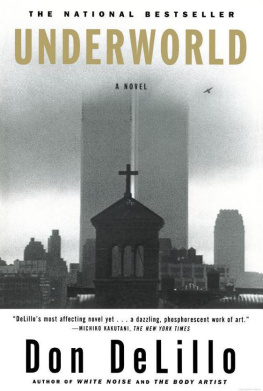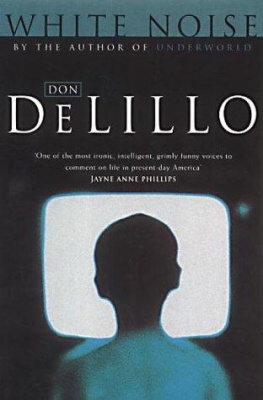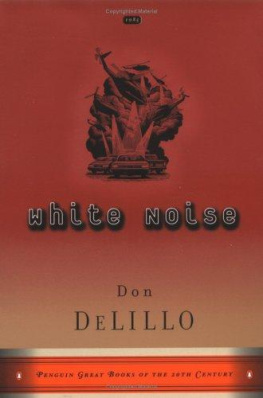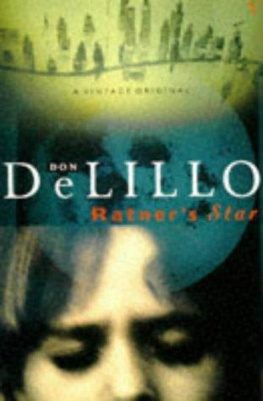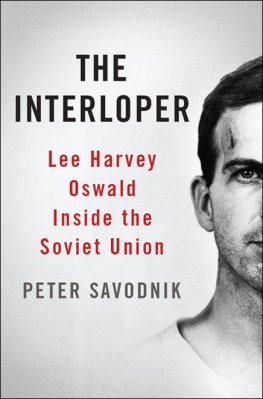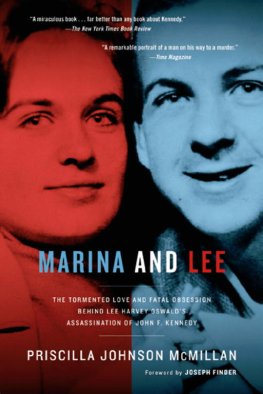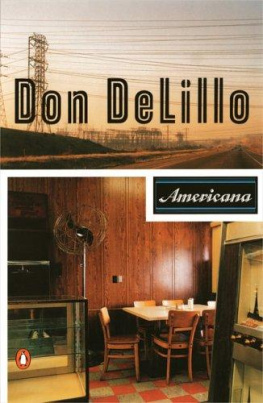


LIBRA
Don DeLillo
PENGUIN BOOKS
Published by the Penguin Group
Penguin Putnam Inc.,
375 Hudson Street, New York, New York 10014, U.S.A.
Penguin Books Ltd, 27 Wrights Lane, London W8 5TZ, England Penguin Books Australia Ltd, Ringwood, Victoria, Australia Penguin Books Canada Ltd, 10 Alcorn Avenue,
Toronto, Ontario, Canada M4V 3B2
Penguin Books (N.Z.) Ltd, 182-190 Wairau Road,
Auckland 10, New Zealand
Penguin Books Ltd, Registered Offices:
Harmondsworth, Middlesex, England
First published in the United States of America by Viking Penguin Inc., 1988
NAL/Penguin edition published 1989
Published in Penguin Books 1991
13 15 17 16 14 12
Copyright Don DeLillo, 1988
All rights reserved
Portions of this book were published in Esquire magazine.
LIBRARY OF CONGRESS HAS CATALOGUED THE HARDCOVER AS FOLLOWS: DeLillo, Don.
Libra. I.
Title.
PS3554.E4425L53 1988 813'.54 87-40649
ISBN 0-670-82 317-1 ISBNO
1401.56046
Printed in the United States of America
Except in the United States of America, this book is sold subject to the condition that it shall not, by way of trade or otherwise, be lent, re-sold, hired out, or otherwise circulated without the publisher's prior consent in any form of binding or cover other than that in which it is published and without a similar condition including this condition being imposed on the subsequent purchaser.
To the boys at 607:
Tony, Dick and Ron
PART ONE
In the Bronx
17 April
In New Orleans
26 April
In Atsugi
20 May
In Fort Worth
19 June
In Moscow
2 July
In Minsk
PART TWO
15 July
In Fort Worth
12 August
In Dallas
6 September
In New Orleans
25 September
In Mexico City
4 October
In Dallas
22 November
In Dallas
25 November


PART ONE
Happiness is not based on oneself, it
does not consist of a small home, of
taking and getting. Happiness is taking
part in the struggle, where there is no
borderline between one's own personal
world, and the world in general.
LEE H. OSWALD
Letter to his brother
In the Bronx
This was the year he rode the subway to the ends of the city, two hundred miles of track. He liked to stand at the front of the first car, hands flat against the glass. The train smashed through the dark.
People stood on local platforms staring nowhere, a look they'd been practicing for years. He kind of wondered, speeding past, who they really were. His body fluttered in the fastest stretches. They went so fast sometimes he thought they were on the edge of no-control. The noise was pitched to a level of pain he absorbed as a personal test. Another crazy-ass curve. There was so much iron in the sound of those curves he could almost taste it, like a toy you put in your mouth when you are little.
Workmen carried lanterns along adjacent tracks. He kept a watch for sewer rats. A tenth of a second was all it took to see a thing complete. Then the express stations, the creaky brakes, people bunched like refugees. They came wagging through the doors, banged against the rubber edges, inched their way in, were quickly pinned, looking out past the nearest heads into that practiced oblivion.
It had nothing to do with him. He was riding just to ride.
LIBRA 3
One forty-ninth, the Puerto Ricans. One twenty-fifth, the Negroes. At Forty-second Street, after a curve that held a scream right out to the edge, came the heaviest push of all, briefcases, shopping bags, school bags, blind people, pickpockets, drunks. It did not seem odd to him that the subway held more compelling things than the famous city above. There was nothing important out there, in the broad afternoon, that he could not find in purer form in these tunnels beneath the streets.
They watched TV, mother and son, in the basement room. She'd bought a tinted filter for their Motorola. The top third of the screen was permanently blue, the middle third was pink, the band across the bottom was a wavy green. He told her he'd played hooky again, ridden the trains out to Brooklyn, where a man wore a coat with a missing arm. Playing the hook, they called it here. Marguerite believed it was not so awful, missing a day now and then. The other kids ragged him all the time and he had problems keeping up, a turbulence running through him, the accepted fact of a fatherless boy. Like the time he waved a penknife at John Edward's bride. Not that Marguerite thought her daughter-in-law was worth getting into a famous feud about. She was not a person of high caliber and it was just an argument over whittling wood, over scraps of wood he'd whittled onto the floor of her apartment, where they were trying to be a family again. So there it was. They were not wanted anymore and they moved to the basement room in the Bronx, the kitchen and the bedroom and everything together, where blue heads spoke to them from the TV screen.
When it got cold they banged the pipes to let the super know.
They had a right to decent heat.
She sat and listened to the boy's complaints. She couldn't fry him a platter of chops any time he wanted but she wasn't tight with the lunch money and even gave him extra for a funnybook or subway ride.
All her life she'd had to deal with the injustice of these complaints.
Edward walked out on her when she was pregnant with 4 DON DELILLO
John Edward because he didn't want to support a child. Robert dropped dead on her one steamy summer day on Alvar Street, in New Orleans, when she was carrying Lee, which meant she had to find work. Then there was grinning Mr. Ekdahl, the best, the only hope, an older man who earned nearly a thousand dollars a month, an engineer. But he committed cunning adulteries, which she finally caught him out at, recruiting a boy to deliver a fake telegram and then opening the door on a woman in a negligee. This didn't stop him from scheming a divorce that cheated her out of a decent settlement. Her life became a dwindling history of moving to cheaper places.
Lee saw a picture in the Daily News of Greeks diving off a pier for some sacred cross, downtown. Their priests have beards.
"Think I don't know what I'm supposed to be around here."
"I've been all day on my feet," she said.
"I'm the one you drag along."
"I never said any such."
"Think I like making my own dinner."
"I work. I work. Don't I work?"
"Barely finding food."
"I'm not a type that sits around boo-hoo."
Thursday nights he watched the crime shows. Racket Squad,Dragnet, etc. Beyond the barred window, snow driving slantwise through the streetlight. Northern cold and damp. She came home and told him they were moving again. She'd found three rooms on one hundred and something street, near the Bronx Zoo, which might be nice for a growing boy with an interest in animals.
"Natures spelled backwards," the TV said.
Next page

